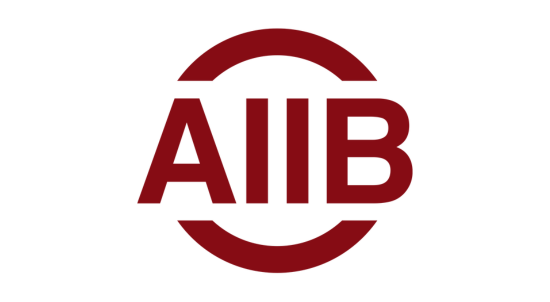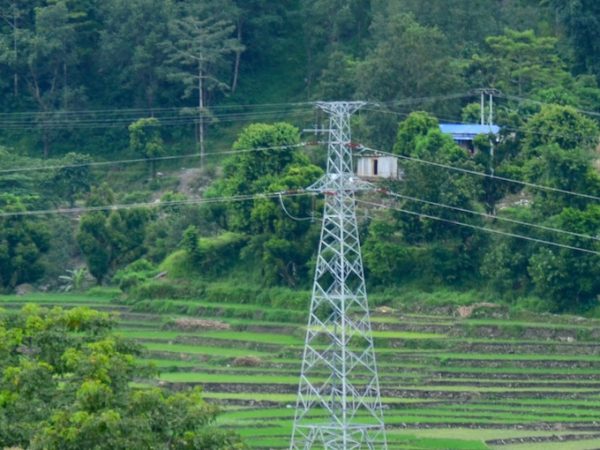External Review Report Recommends Sweeping Changes to the AIIB’s Independent Accountability Mechanism

The Asian Infrastructure Investment Bank (AIIB), whose finance last year exceeded USD 52 billion, is currently reviewing the effectiveness of its independent accountability mechanism (IAM) for addressing allegations of environmental and social harm from communities, the Project-Affected People’s Mechanism (PPM). Ultimately, the success of the PPM as a trust-building office that can strengthen the effectiveness of AIIBs projects, remedy harm and its reputation as a responsible stakeholder depends on whether the recommendations of a recently released external review report are considered in earnest and pursued with ambition.
The Process Thus Far
In June 2024, the Managing Director of the Complaints-resolution, Evaluation and Integrity Unit (MD-CEIU) released the external review report of the PPM policy. We’ve written previously on the importance of the policy reviews to be independent, transparent, and consultative, and commissioning an independent expert to conduct an external review to precede the formal review is one crucial way of achieving that.
The external reviewer was tasked explicitly with assessing the overall mandate of the PPM, including a review of “PPMs role in AIIB’s accountability, structure, functions, policy, rules of procedure, effectiveness, visibility, accessibility and resources.” Among several express principles intended to guide the review was an expectation to “get[ting] as wide a spectrum of stakeholder views on [the] PPM, its positioning within AIIB and its operation, while avoiding any regression or weakening of the [PPM’s] Policy.”
Accountability Counsel was one of the many civil society organizations that participated in the consultations for the external review, alongside AIIB board members, staff and management, certain clients and complainants, peer IAMs, and experts in the field of environmental and social accountability. The resulting findings succinctly discuss the PPM’s weaknesses as compared to peer IAMs which form the basis for concrete recommendations to bring policy in line with international good practice. The report also offers a rare insight into the institutional perceptions of the PPM and the review of the PPM Policy.
Findings and Recommendations Reinforce Civil Society Recommendations
A matrix of the proposed changes to the PPM Policy, their rationale, and examples of similar policy at other IAMs can be found here. Some crucial proposed changes to the policy are:
- There should be an explicit reference to remedy in the purpose/objective of the PPM Policy.
- The PPM should be able to consider AIIBs compliance with other AIIB policies, beyond the Environmental and Social Framework.
- Communities should not have to engage with both client-led grievance mechanisms and AIIB’s management before approaching the PPM.
- Under certain circumstances, the PPM should have the ability to initiate cases in the absence of a formal complaint.
- The PPM should have the mandate to make recommendations alongside findings of non-compliance, and it should have improved ability and capacity to monitor outcomes and the delivery of remedy.
In addition, the external review report also makes institutional recommendations around strengthening internal handling of complaints by the bank’s management and its clients, which by AIIBs own findings remains unorganized, ad-hoc, and opaque. Other recommendations center on ways to improve the PPM’s public visibility, outreach, and general capacity to engage with communities
On the issue of whether PPM should hear complaints when a project is co-financed with another financial institution, the report recommends one of two options – either abolish the co-finance exclusion, or improve upon transparency, coordination, and institutional learning from case lessons while continuing to rely on the IAMs of its co-finance partners. We have previously written about the importance of removing the co-finance exclusion mandate and will continue to push for its removal. Even when AIIB co-finances a project, it still actively participates in due diligence, implementation, and monitoring decisions that could result in harm and the second option fails to hold AIIB accountable for those harms.
The Stakes
Overall, we believe the external reviewer’s policy recommendations are wide ranging, timely, and crucial to direct the PPM policy toward the baseline of international good practice. However, the MD-CEIU should aim to go beyond the baseline observed by the external reviewer when advancing final recommendations for changes to the PPM’s policy. If the AIIB ignores these recommendations, it would be reasonable to question whether the review was launched in earnest.
Changes are also needed in improving the independence of the PPM from management by putting in policy provisions around how the MD-CEIU and other key personnel of the PPM are hired, who they report to, post employment bans, and who decides the budget of the PPM. According to good practice, any decision pertaining to these issues should be made by the board and not management. Moreover, the process of compliance review and dispute resolution should be strengthened to enhance community agency, for example by ameliorating power imbalances between parties during a dispute resolution, or ensuring that all parties are provided equal timely access to compliance review reports. Finally, the PPM should be given an advisory function in line with other IAMs.
Addressing the Concerns of Accountability Skeptics
The need for a thorough review that brings PPM in line with international good policy, best encapsulated in the updated Good Policy Paper, is not shared by all stakeholders. As the external review report notes, most management and some board members feel that the review should only result in light changes because the PPM has not yet received any eligible cases and thus hasn’t been tested. Some management members also feel that not receiving eligible cases is normal considering the AIIB’s relative newness. Further, some stakeholders held the view that reducing accessibility barriers to the PPM may result in a deluge of frivolous complaints.
The external reviewer already addresses these concerns by reiterating the underlying justifications of the review, i.e., the infrastructure sector has a greater potential for complaints and the importance of the PPM being fit for purpose towards AIIB’s development effectiveness. In addition, the PPM’s lack of a track record makes it unpredictable to affected-communities who may potentially file complaints and it is extremely important that any future cases received by the PPM follow a fair, equitable, and transparent process to address the predictability gap and build community trust.
Moreover, the existence of 33 IAM complaints across 9 projects co-financed by AIIB demonstrates that, despite the AIIB’s nascency or the size of its portfolio, AIIB-supported projects are at least being perceived by project-affected communities to cause environmental and social harms. The review should make every effort to make the PPM fit for purpose so that affected-communities know of the PPM’s existence and are able to file complaints to it.
Finally, there is the pervasive myth of frivolous complaints. It’s a view that is not unique to AIIB management but rather shared across many MDBs. Even setting aside the bias and power-blindness that is implicit in a view that project-affected communities are filing false complaints for some perceived gain, the data collected by the IAMs themselves prove it to be false. The International Finance Corporation’s Compliance Advisor Ombudsman, which does not require communities to engage with management or clients before filing a complaint, has received 406 complaints in nearly 25 years of functioning. In 2023 alone, the IFC financed 325 long-term investment projects, demonstrating that the vast majority of its projects do not result in a CAO complaint. Of these 406 complaints 229 complaints have been eligible (around 56%). This indicates not only that there is no deluge of complaints but also the high percentage of eligible complaints show that the complaints are not frivolous. Similarly, the African Development Bank’s Independent Recourse Mechanism’s own findings show that there have been only 1.10 complaints registered by the IRM for every 100 projects approved.
All That’s Left is To Do What’s Right
The external review report is a monumental step in the right direction. However, we remain concerned about certain institutional perceptions of the PPM, including those who still perceive accountability as at odds with AIIBs core mandate of leanness or its client-driven culture. AIIBs mandate can only be fulfilled if its projects are benefiting frontline communities in Asia and further not leading to dispossession, wide-spread impoverishment, and violations of rights of already marginalized communities. A visible, accessible, and effective PPM is thus crucial to AIIB’s purpose. If this review does not, at a minimum, incorporate the recommendations from the external reviewer, the AIIB will send a clear message that it is not a responsible investor.

